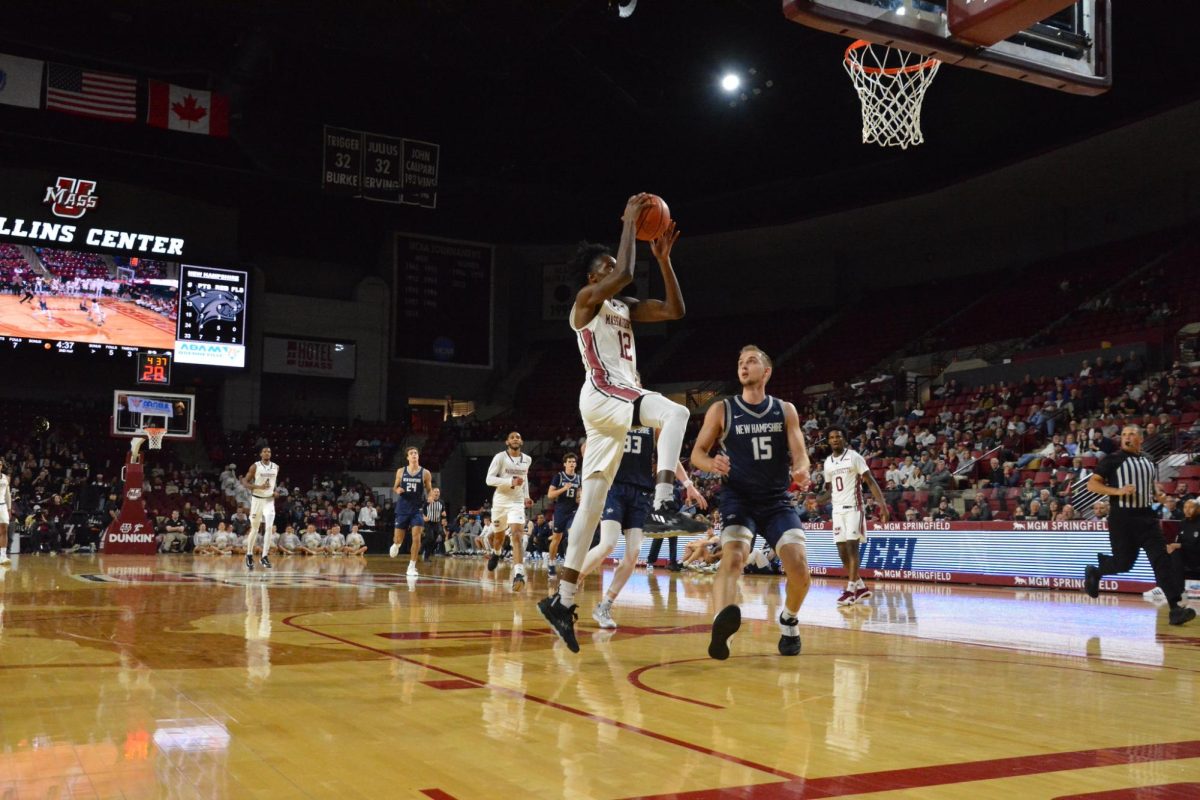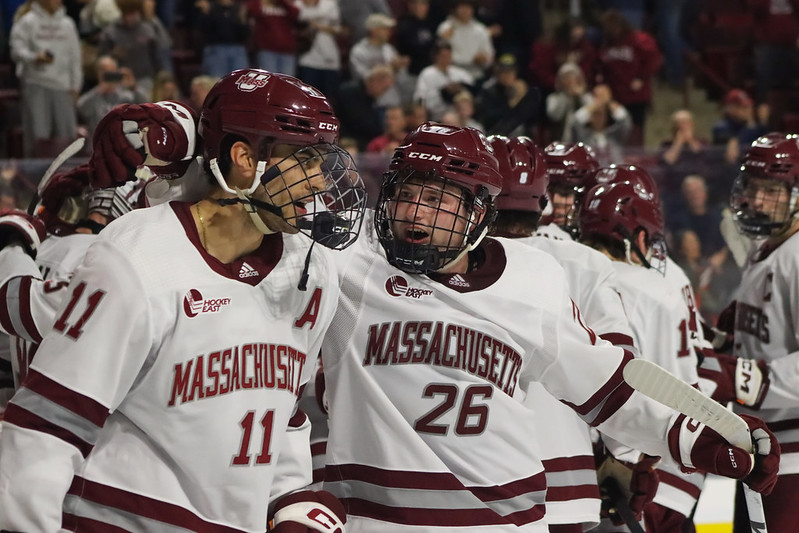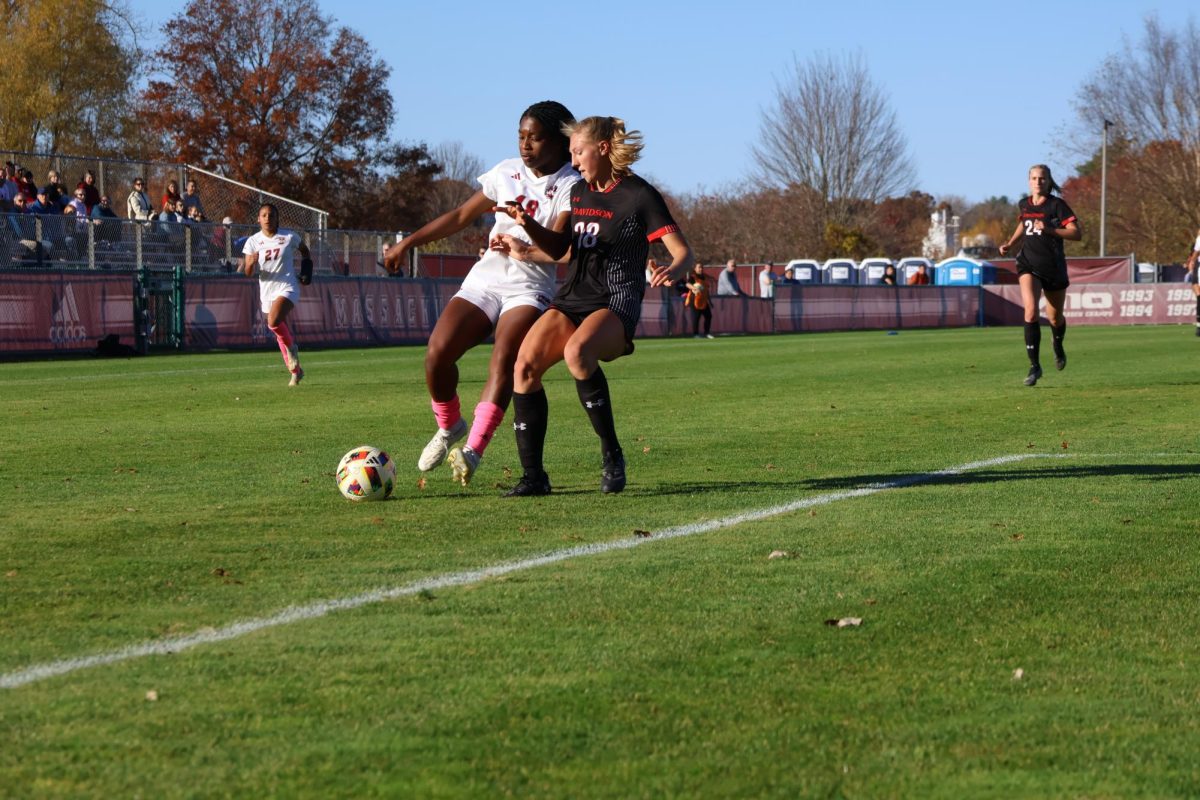Several state legislators visited the University of Massachusetts at Amherst yesterday.
Thirteen districts were represented in the visit, which was organized by the Student Center for Educational Research and Advocacy (SCERA). Legislators took a tour of the campus and spoke with students about the recent budget cuts, and how they have affected the University.
“[The visit] to tell legislators how much we love our campus,” said Kerry Mulcahy, the Student Director of SCERA.
Representatives Mary Jane Simmons (D-Leominster), Emile Gouen (D-Fitchburg), Dan Keenan (D-Agawam), Anne Gobi (D-Barre) sent aides to represent them at the meeting. Senators Brian Lees (D-1st Hampden and Hampshire) and Mike Knapik (D-2nd Hampden and Hampshire) also sent legislative aides. In attendance were Representatives Stephen Buoniconti (D-Chicopee), Ellen Story (D-Amherst), Reed Hillman (R-Brimfield), Jose Santiago (D-Lawrence/Methuen), Michael Kane (D-Holyoke) and John Merrigan (D-Bernardston) and Senator Stanley Rosenberg, (D-Hampshire and Franklin). The legislators also listened to testimonials about the effects of budget cuts.
“Budget cuts are compromising the quality of this campus,” said Ian Trefethen, a Psychology sophomore.
Sen. Rosenberg also gave a presentation on the importance of the University to the Commonwealth, and promised that he and like-minded colleagues would fight for UMass.
“We’ll do our best to be of help,” Rosenberg said.
The legislators commented on how much they learned in their visit.
“I learned a lot of things,” said Rep. Story. “I didn’t know that there were 90 majors to choose from.”
Story was impressed with the professionalism of the students who hosted the legislators.
“Amanda Weaver was an absolutely professional tour guide,” Story said. “If any other university wants to have legislators visit a campus, they should get in touch with Kerry [Mulcahy] and SCERA.
“I think that the [legislators] who came today that thought it was worth the trip,” Story added. “Any cuts to the University should be as little as possible. The University got more than its share this year. It’s too much of an asset.”
Legislators learned the effect the budget cuts have been having on academic programs.
“It’s a huge eye-opening experience to come to the flagship campus of the University,” Rep. Kane said. “And to hear the impact that [budget cuts] will have on many of the smaller departments. They can’t absorb the loss in revenue.”
The revenue shortfalls can only be halted, Kane said, by increasing revenues collected – in short, raising taxes. The problem, Kane said, is that acting Governor Jane Swift has promised to veto any proposed tax increase.
“Every time the House and Senate has passed a tax measure before the General Court, [the bills] only passed by four or five votes,” Kane explained.
Kane said it is difficult to get the two-thirds majority to override the governor’s veto. Representative Merrigan explained that the revenue shortfalls took everyone by surprise.
“We had been riding a bubble in the stock market,” Merrigan explained. “We were building programs, and then the bubble [worth $700 million dollars] popped.”
The voter approved tax rollbacks have also caused a problem, Merrigan said.
“Then you take [the tax rollbacks] and it [the deficit] is another billion dollars,” Merrigan added.
While most of the legislators were from Western Massachusetts, Rep. Santiago traveled two and a half hours to visit UMass.
“I like to know how [the budget cuts] are affecting our children’s education,” Santiago said. “The University of Massachusetts provides a tremendous service to the communities, especially Lawrence, and the budget cuts hurt communities when you have a tuition hike. It puts a hardship on those kids.”
Santiago explained that bilingual education, which is usually threatened by budget cuts, needs to be protected for students to have an equal opportunity to succeed.
“It would be an injustice to the many immigrants who come to the United States for an education,” Santiago said.






